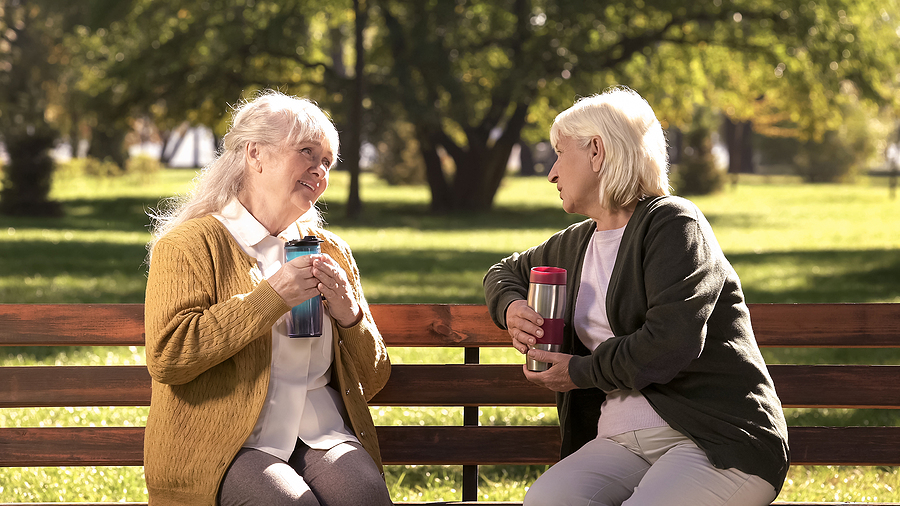An Australian study provides evidence that supporting someone with cancer makes a very real difference.
Clearly this disease takes a lot to deal with, between absorbing the diagnosis and likely implications, managing the treatment, and even in the best-case scenario when it’s gone, eternally wondering if it’s going to stay away.
The research I’m about to outline used information collected as part of the Australian Longitudinal Study on Women’s Health, which has been run by staff from Newcastle and Queensland Universities for around 30 years.
Survey responses were collected from 1428 women who developed cancer (all types, including breast, colon, melanoma, and so on) between 1996 and 2019.
At the start participants were aged 45 to 50. By 2019 they were in their late-60s to early 70s.
The surveys asked questions about three main issues: their optimism, their level of social support, and their physical and mental health.
Optimism was defined as the broad expectation that things would go well.
Social support referred to the women’s view of how much emotional and practical help came from their relationships with others.
In addition, they were asked a range of health-related questions on areas such as physical function, pain, mental health, vitality, social engagement, and general health.
The researchers then studied the relationships between these three issues and found that greater optimism and social support were associated with a perception of better health.
Interpreting this can be tricky. For example, it might be telling us that optimism and/or strong social support help women to see their physical and mental health in a more positive light.
But it could also be saying that women with better physical and mental health are more likely to be optimistic and/or have higher levels of social support.
We’d need interviews with a sample of the women to be sure.
Perhaps optimistic women are more likely to develop social relationships. It might also be the case that social support helps a woman to be more optimistic.
So we can’t explain cause and effect. It’s clear though that these three issues go together and somehow influence each other.
No doubt there are layers of complexity in managing cancer that this study didn’t identify, and every woman’s experience would be different, but what seems worth noting is the role of social support, because that’s where we can contribute to someone else.
Moreover, it’s hard to expect any woman to stay optimistic through the hard slog that cancer can put her through.
So how do we best provide social support?
The Breast Cancer Network of Australia has some sound advice on giving both emotional and practical support. It comes down to what we can realistically contribute.
Emotional support involves letting someone know you care and want to be available.
It might look like telling her, for example, that you’re on hand to listen, that you can come over when needed, or that she can ring at any time.
You could offer to call in for tea and a chat, if there’s a good time. Or pick up coffees on the way.
If she’s ready to do something like going for a walk you could do that with her.
On the practical side, life goes on regardless of treatment schedules or how wretched someone is feeling.
Think about what you could provide that’s specific. Maybe a home-cooked meal or pot of soup, or something she can freeze and use when it’s needed. (It’s probably worth asking first to make sure that what you bring is something she’ll appreciate.)
You could offer to drive her to appointments or help organise a roster to do that.
Women who’ve had surgery will often have difficulty with housework tasks such as ironing, vacuuming, or hanging washing.
There’s also shopping, gardening, taking care of pets, and running errands.
And what not to do?
Don’t tell her to let you know if there’s anything you can do. That’s too wide open and you’ll probably never hear from her.
Don’t tell her she should be more optimistic or offer advice about her treatment or her lifestyle.
Don’t tell her horror stories about other people with cancer.
Don’t make assumptions about what she can and can’t do.
And don’t avoid her.

